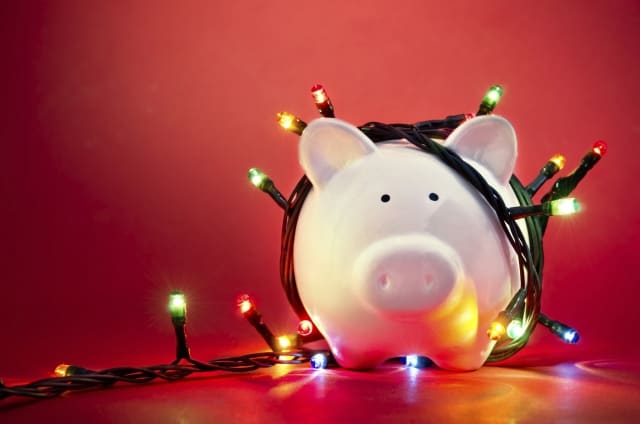10 Christmas spending tips: how to avoid a financial hangover in the New Year
With Christmas being an expensive time for many us, Martin Upton – Director of the True Potential Centre for the Public Understanding of Finance at The Open University Business School – shares 10 Christmas spending tips, to get your finances on track for the New Year.

As we approach the festive season, TV adverts and newspaper inserts are encouraging us to embark on the usual Christmas practice of “shopping ‘til we drop” – or these days, shopping until our index fingers get tired of tapping in details online.
But we also start to brace ourselves for the subsequent financial shock, when the credit card bills land on our doormats and in our email inboxes in the New Year.
Overindulging in food and drink is so often matched by overdoing our spending, with the result that the first part of the New Year turns into a damage repair exercise for our budgets.
Of course, there are a range of things you can do to help turn Christmas into a financial success rather than financial excess. Here are my top 10 tips:
1. Set a budget for your Christmas spending
First, draw up a budget for your Christmas spending – not just presents, but the additional spending on food, drink and socialising.
Embed this Christmas element of your budget within the rest of the household budget, so that you can manage the overall effect Christmas spending has on your finances over a number of months.
Try not to allow yourself to be pressurised – even by your children or close family – into spending more than you can really afford.
2. Use savings wisely
Make sure you know how your extra spend is going to be financed. Perhaps it means withdrawing funds from a savings account, in which case make sure you access the money from the account paying the least interest.
3. Cash in “Christmas Club” accounts and loyalty cards
You can also finance your spending by cashing in the balance held in a “Christmas Club” account – built up during the year to spread the burden of the Christmas spend.
Maybe you also have credits on your store loyalty cards. These don’t earn you any interest, so cash them in to help finance your Christmas spending.
4. Pay off credit cards quickly
If you use a credit card, try to ensure that you pay off the balance in full when the bill arrives in the New Year. Generally, credit cards are an expensive way to borrow money – and store cards are even worse, given that they generally have higher interest rates.
If you’re taking advantage of credit card deals that offer 0% rates on balance transfers, make sure you know the date at which this introductory “teaser” rate comes to an end and pay off the balance before then.
5. Check your overdraft details
If you’re funding your spend via an overdraft, make sure it’s authorised and you know the interest rate and any other charges your bank applies to overdrafts.
Don’t use an unauthorised overdraft, as this is likely to attract high charges. If in doubt, check with your bank first.
6. Shop around and look for deals
When it comes to shopping, further good rules apply. Shop around and look for deals – many retailers are discounting their prices even as the festive season gets underway and there are good deals to be had.
Fashion retailers have had a difficult few months, as the warm autumn has hit spending on clothing designed for autumn and winter – many are discounting prices to get customers through the door.
Additionally, media stories have highlighted the fierce competition between the supermarkets, providing opportunities to secure your Christmas shopping at bargain prices.
7. Give vouchers to use in the sales
Be prepared to give shopping vouchers or credits as a part of your Christmas presents – Christmas is always followed by the sales period (with some retailers starting their sales on Boxing Day).
Used after Christmas, these gifts will be able to buy their recipients more than prior to Christmas. You may even want to snap up the bargains in the sales to prepare for next Christmas too!
8. Hold on to your receipts
As ever, keep your receipts in case presents need to be exchanged or refunded – and for those items you send to your friends, put in a gift receipt to enable them to return the goods, if needed.
9. Keep a running total
Keep a close check on your spending – maybe by compiling the running total on your mobile phone or tablet.
The bills will come in after Christmas as surely as night follows day, but you’ll be better placed to manage them, if you know what the bottom line of your spend amounts to on each card.
10. Get your finances on track in the New Year
Finally, once Christmas is out of the way, you might like to join our award-winning free online course “Managing My Money.” It starts on 5 January and lasts eight weeks.
Supported by True Potential LLP, we’ll cover all of the key aspects of personal financial management, including budgeting. And it’ll give you the skills to manage the financial consequences of next Christmas even more effectively!
Good financial planning will help you enjoy not only the festive season’s celebrations, but the New Year too. Join “Managing My Money” now.




